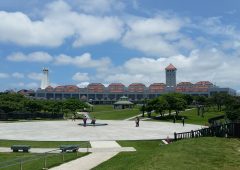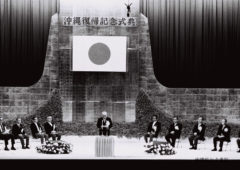2013.04.12
Tokyo wants increased emphasis on English education
Citing the need for increased English language education in Japan, Prime Minister Shinzo Abe has earmarked ¥1 trillion to develop a “globalized” work force through educational reform.
Abe and his ruling Liberal Democratic Party want to reform the education system to promote global talent, thus reversing Japan’s declining competitiveness on the world stage. He has specifically targeted English-language studies as an area for improvement.
English education is the key component of Abe’s plan, which includes doubling the number of doctorates in English language to 35,000. He wants to place tablet computers in the hands of all students –from elementary school through high school—by 2020, in order to rejuvenate science studies.
Also in the plan is a target for people to reach or exceed a threshold of scores in TOEFL, the Test of English as a Foreign Language. The new levels would be a requirement to meet college admission and graduation, and to qualify for government jobs. Some lawmakers are saying the higher TOEFL scores won’t always mean English fluency, arguing “we should instead teach Japanese history and culture.” The lawmaker says “Mandating certain TOEFL scores for all Japanese college students sounds to me like colonial policy.”
The head of the LDP’s education system revitalization headquarters disagrees, saying changes are necessary. In 2010, Japan’s average TOEFL score was 69, among the worst three out of 33 Asian countries. The LDP goal is to require students at colleges achieve score 90 or higher to graduate, and require that high school students score 45 or higher to graduate.

 2024.07.07
2024.07.07 2024.06.21
2024.06.21 2024.05.15
2024.05.15 2024.02.07
2024.02.07 2024.01.31
2024.01.31 2023.11.02
2023.11.02 2023.10.26
2023.10.26 2023.09.29
2023.09.29 2023.09.01
2023.09.01






